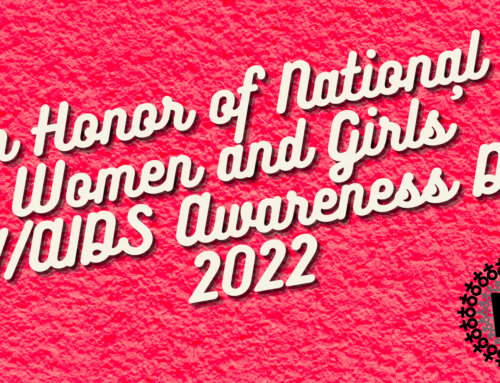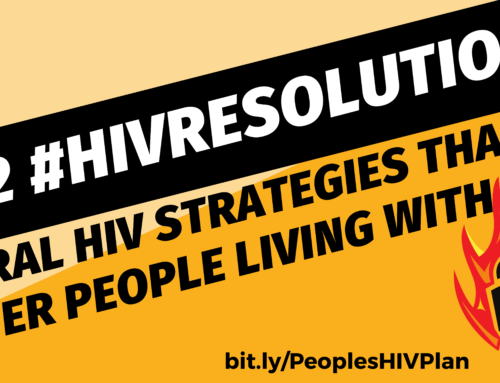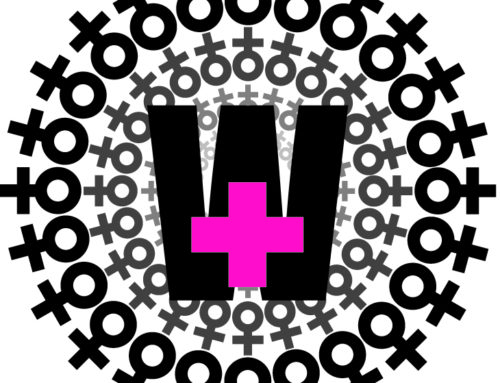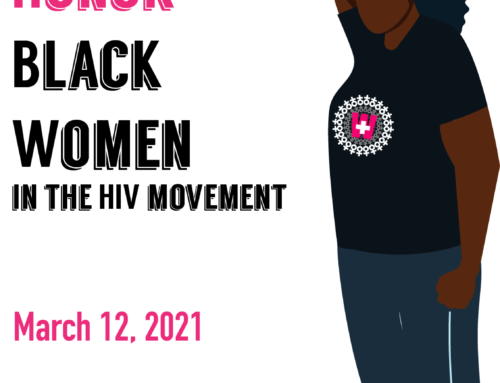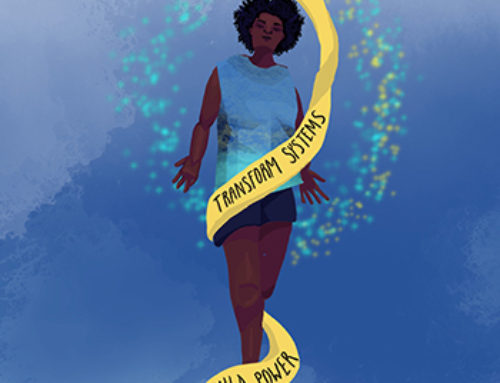For immediate release
December 1, 2021
For media inquiries contact media@pwn-usa.org or 626-274-5793
This World AIDS Day follows another year of struggle, grief and loss in our community. In 2021 alone, Positive Women’s Network-USA lost two of our founding members – Loren Jones and Juanita Williams. Both were giants, forging new paths towards reproductive justice, economic equity, and an HIV research agenda that centers the needs of Black women. It is on their shoulders, and many more, that we stand today.
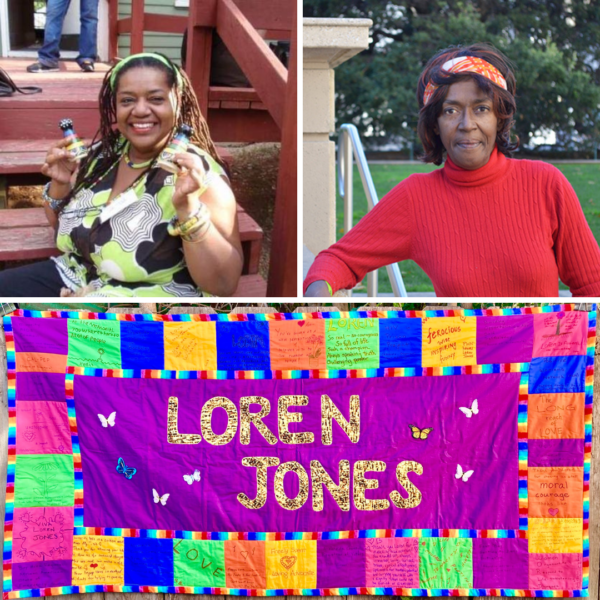
Top left: Juanita Williams / Top Right: Loren Jones / Bottom: Loren Jones memorial quilt, created with love by Rebecca Denison and Linda Evans
At PWN, we have never been confused: HIV itself is not, and has never been, the problem; it is a spotlight that shines on many fractured systems of injustice, especially as they harm Black and Latinx people, other communities of color, queer and transgender people. The system is not broken. Racial inequities in COVID have again exposed that the system is working exactly as designed. But the new National HIV/AIDS Strategy, released today, takes some important steps towards addressing these injustices.
The domestic HIV epidemic is driven by persistent racial and geographic inequities that hinder efforts at prevention, diagnosis, treatment, and most importantly, care. While Black, Latinx, Indigenous, and other communities of color face both disproportionate rates of HIV and worse health outcomes after diagnosis, systemic inequities compound and threaten the safety, health, and wellbeing of people living with HIV. PWN knows that the only way to address the epidemic meaningfully and wholly is to formally engage leadership from people living with HIV. Yesterday, we hosted Rise Up: Women Living with HIV Demand Action to make it clear that there cannot be a plan about us without us.
But this World AIDS Day, we are also celebrating progress. We applaud the White House Office of National AIDS Policy (ONAP) and Director Harold Phillips for their release today of the new National HIV/AIDS Strategy (NHAS), 2022-2025, and look forward to a robust partnership on its implementation.
“We are pleased to see the NHAS explicitly focus on advancing racial equity in the HIV response. Black and Latinx women – cis and trans – and residents of the US South bear the brunt of the HIV epidemic among women. The NHAS 2022-2025 commitments to ensure that resources go to Black, Latinx, Indigenous, and other communities of color, to elevate BIPOC researchers, and to diversify the HIV workforce are critical steps in the right direction,” said Venita Ray, co-executive director of Positive Women’s Network-USA.
Critically important for PWN members and our base, PWN and our comrades at the US People Living with HIV Caucus have been fighting to elevate a national focus on well-being and quality of life for people living with HIV, especially for those aging with HIV, throughout the federal HIV response. And we won!
While past national HIV strategies have measured success for people living with HIV only in our viral loads and medical appointments, the new NHAS goes beyond a biomedical response to HIV by committing to address quality of life for people living with HIV in its own right, through the creation of a new measurable indicator on our wellbeing. This, along with clear commitments to people aging with HIV, are crucial.
“We know that leadership matters and we congratulate ONAP for addressing these important issues. We need and deserve a response that prioritizes the 1.2 million US residents who are already living with HIV, and which sees us as whole, intersectional, complex human beings worthy of living safely, well, joyfully, and with dignity. We look forward to and expect a robust partnership with the federal workgroup that will create metrics on quality of life for people living with HIV,” said Naina Khanna, co-executive director of Positive Women’s Network-USA
“We are pleased that the new NHAS begins to name important gaps in addressing the needs of sex workers and immigrants. However, we are troubled by an ongoing reliance on invasive and nonconsensual forms of HIV surveillance, and what appears to be an expansion of data sharing activities without addressing widespread community concerns about informed consent, adequate protections for HIV data privacy and security, and the criminalization of our communities.” said Breanna Diaz, Policy Director at Positive Women’s Network-USA.
Notably, we are disappointed by the failure of the NHAS to address sexual and reproductive rights, health and freedom for people of all genders living with HIV, especially in the current political context, and a lack of clear commitment to structured engagement with national networks of people living with HIV.
PWN and other networks of people living with HIV continue to demand a federal response that prioritizes the full lives of all women and people of trans experience living with HIV – a response that meaningfully involves networks of people living with HIV and which goes beyond viral loads and genomic sequences as the sole strategies to address the epidemic.
“When we push back against a biomedical approach to HIV policy, it is because we know that measuring health inequities and disparities must go beyond simply if we are virally suppressed. Instead, it must include combating racism, misogyny, homophobia, and transphobia, securing our quality of life, safety in our homes, access to quality healthcare and fully embracing our rights to sexual pleasure and reproductive justice,” said Barb Cardell, PWN-USA’s Training and Technical Assistance Director.
PWN will continue fighting for stronger commitments to our communities in the federal response.
Here’s what that looks like:
- Explicit involvement of networks of people living with HIV in the federal HIV response. That starts with rechartering the President’s Advisory Council on HIV/AIDS (PACHA), the CDC/HRSA Advisory Body on HIV, Viral Hepatitis and STD Prevention and Treatment (CHAC), and the Office of AIDS Research Advisory Council (OARAC) to include designated seats for members of the U.S. People Living with HIV Caucus. Add your name to support our demand here
- Bring the U.S. People Living with HIV Caucus in as a key player to develop the final Quality of Life metrics NHAS has yet to finalize.
- Ensure a favorable human rights environment for people living with HIV, including a moratorium on molecular HIV surveillance, ending all forms of HIV-related criminalization, and a commitment towards the sexual and reproductive health, rights, and justice for people living with HIV. Add your name to support our demand here
“Equitable access, everyone’s voice” must include the collective, organized voices of people living with HIV. PWN is ready and looks forward to partnering with ONAP and other federal leaders to bring women and people of trans experience living with HIV into a national response that is robust, inclusive, and centered on liberation for our people.
For Loren. For Juanita. For Marco. For Deloris. For the countless others we have loved and lost, this year alone. We continue this work in your names.
Tomorrow when World AIDS Day is over, we continue the work of honoring, celebrating, and uplifting those who came before us and we will continue to fight like hell for a world where people living with HIV can survive and thrive.
And as always, we will hold, protect, and love each other.
In sisterhood and solidarity.
Positive Women’s Network – USA



